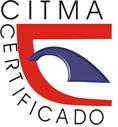Social imaginaries and digital inclusion of students with intellectual disabilities
DOI:
https://doi.org/10.5281/zenodo.7873659Keywords:
Intellectual disability, Digital divide, Inclusion, TechnologyAbstract
The objective of the study was to analyze the digital inclusion of students with intellectual disabilities from the social imaginaries that teachers and families have about the use of technology in education, and how the country's educational policies promote digital inclusion. For this, a qualitative research approach and the multiple case study methodology were used. Among the findings found, the willingness of teachers and families to incorporate technology in the educational field to strengthen the skills of students with intellectual disabilities and thus contribute to their digital inclusion stands out. While, at the policy level, those that have been implemented in the country have prioritized the reduction of the digital divide in access to equipment and internet connectivity, and to a lesser extent there has been an impact on the development of digital skills and competencies that make it easier for students to appropriate them, whether they have a disabling condition or not.
Downloads
Downloads
Published
Issue
Section
License

This work is licensed under a Creative Commons Attribution-NonCommercial 4.0 International License.
















